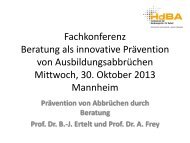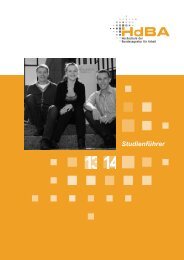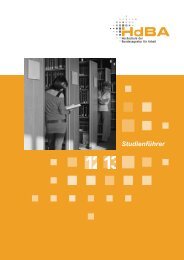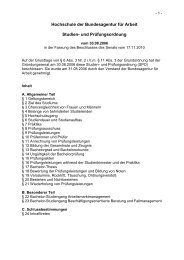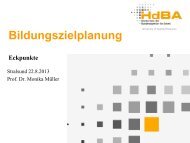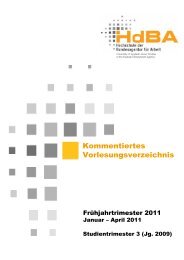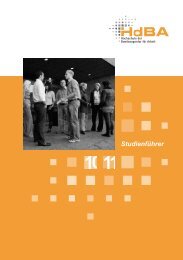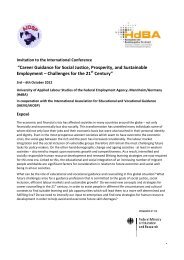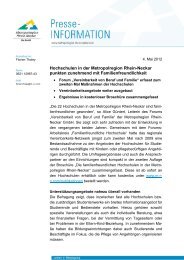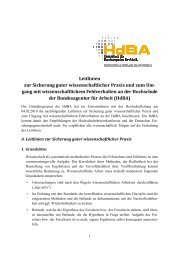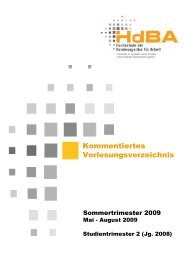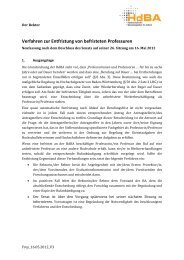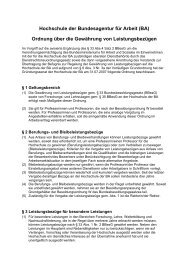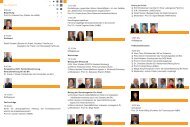Brain Drain - Hochschule der Bundesagentur für Arbeit
Brain Drain - Hochschule der Bundesagentur für Arbeit
Brain Drain - Hochschule der Bundesagentur für Arbeit
You also want an ePaper? Increase the reach of your titles
YUMPU automatically turns print PDFs into web optimized ePapers that Google loves.
������������������������������������������������������������������������������<br />
�����������������������������������������������������������������<br />
�<br />
�<br />
3.4 Tasks and Learning Questions<br />
Gather information on main entrance requirements to the (compulsory) education<br />
system in another country.<br />
Find information on entrance requirements to a market in another country.<br />
(Work permit? Residence permits?)<br />
3.5 References<br />
Internet – last download October 2009<br />
http://www.daad.de/de/index.html<br />
http://europa.eu.int/eures<br />
http://ec.europa.eu/ploteus<br />
http://www.cedefop.europa.eu<br />
4. Course 4: Knowledge of Equivalence of Degrees and Professional<br />
Qualifications Obtained in Different Countries<br />
4.1 Learning Objectives<br />
• The BDBG counsellor knows about the main regulations on the equivalence of<br />
degrees and professional qualifications obtained in different countries and about<br />
recognition procedures and he is able to explain regulations and procedures to<br />
clients. (TAX 3 – supporting competences, client-interaction competences)<br />
• The BDBG counsellor can judge on special markets’ and clients’ needs related to<br />
qualifications and the specific plans of individual clients (educational and workrelated)<br />
and can give clients individual advice. (TAX 4 foundation competences,<br />
client interaction competences)<br />
• The BDBG counsellor knows examples of international careers and is able to raise<br />
clients’ awareness on the consequences of their decisions. (TAX 4 – clientinteraction<br />
competences)<br />
4.2 Unit 1: Main Regulations on the Equivalence of Degrees and<br />
Professional Qualifications Obtained in Different Countries,<br />
Recognition Procedures<br />
The rights of EU citizens to establish themselves or to provide services anywhere in<br />
the EU are fundamental freedoms in the Single Market. National regulations which<br />
only recognise professional qualifications of a particular jurisdiction present obstacles<br />
to these fundamental freedoms. These obstacles are overcome by EU rules (Bologna<br />
process and Lisbon conclusions) guaranteeing the mutual recognition of professional<br />
qualifications between Member States.<br />
16



